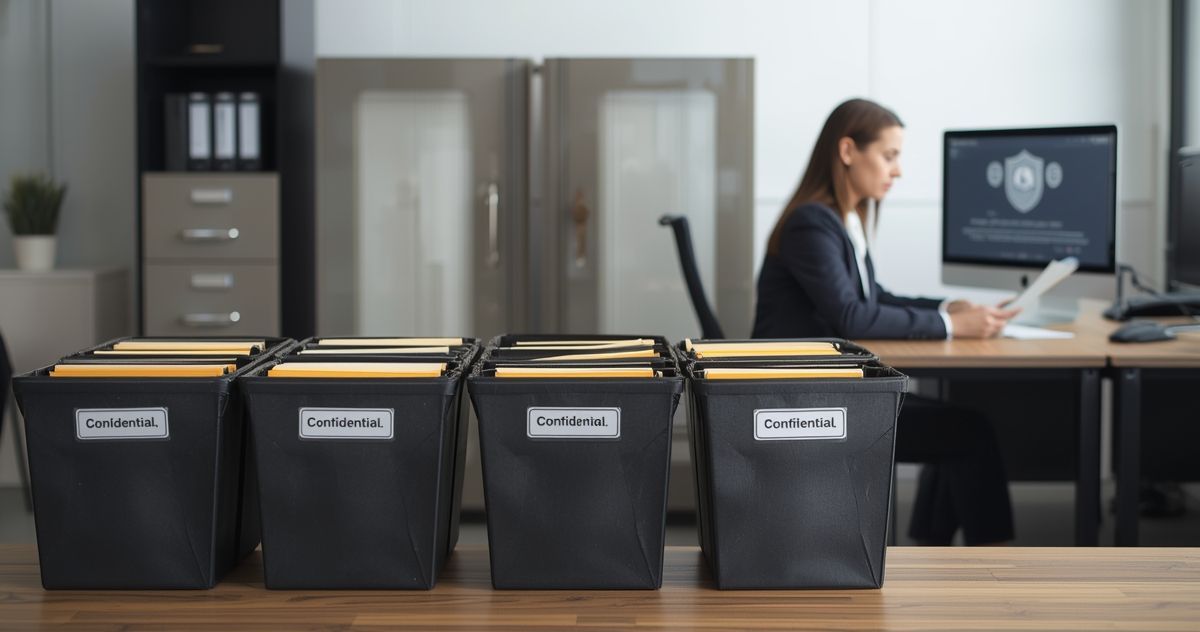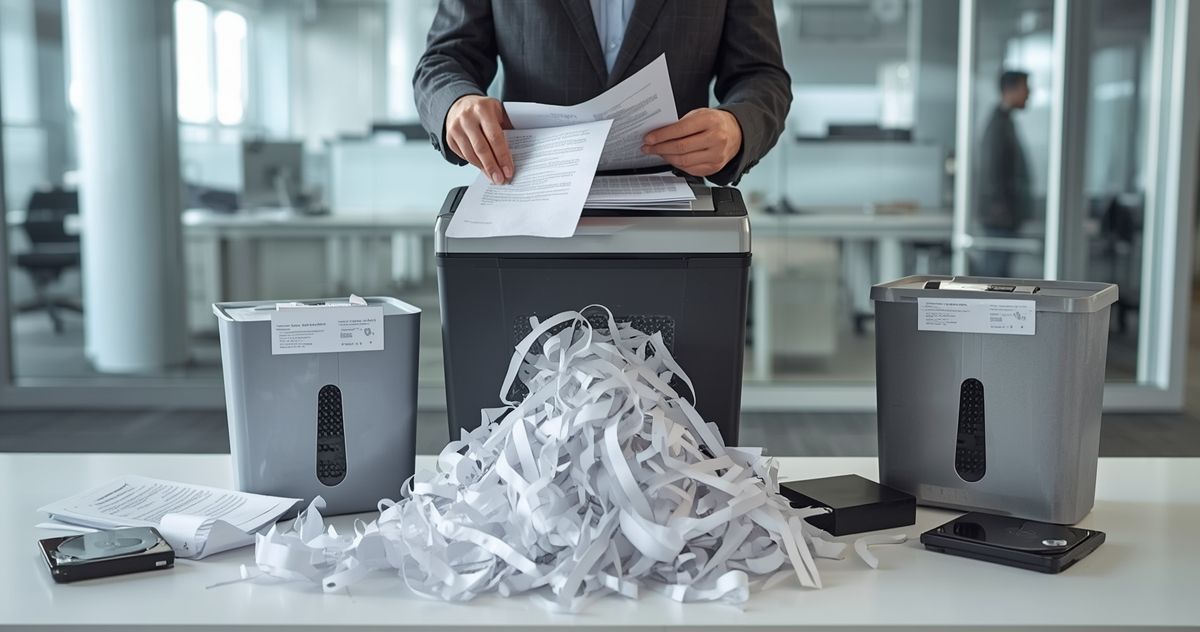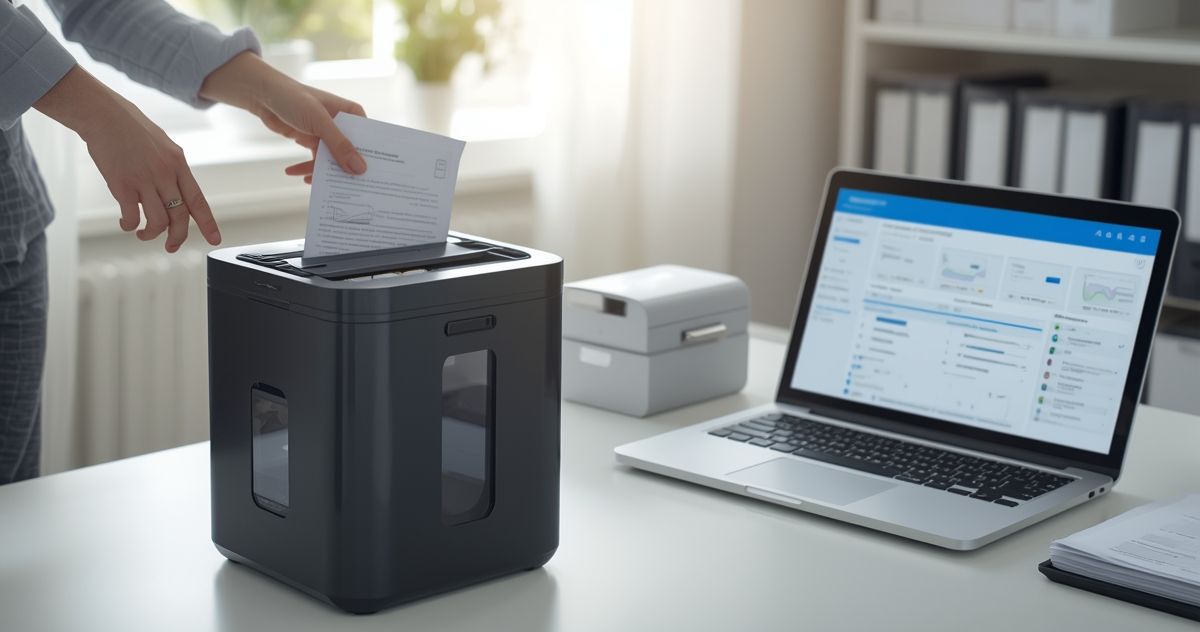How Media Destruction Safeguards Your Sensitive Information
How Media Destruction Safeguards Your Sensitive Information
In an increasingly digital world, safeguarding sensitive information has become a paramount concern for businesses and individuals alike.
While many focus on cybersecurity measures, physical media containing sensitive data also requires careful attention. This is where media destruction comes into play.
Proper media destruction services in Massachusetts ensure your information is irretrievably destroyed, protecting you from data breaches, identity theft, and other security risks.
Understanding Media Destruction
Media destruction refers to the process of destroying physical media that contains sensitive information. This includes paper documents, hard drives, CDs, DVDs, USB drives, and other storage devices. The goal is to render the data on these media completely unreadable and irretrievable.
Types of Media Destruction
There are several methods of media destruction, each suitable for different types of media:
- Shredding: This involves using specialized shredders to cut paper documents or optical discs into small pieces. For paper, cross-cut shredders are preferred as they provide a higher level of security compared to strip-cut shredders.
- Degaussing: This method uses a powerful magnetic field to erase data from magnetic storage devices such as hard drives and tapes. Degaussing is effective but renders the device unusable afterward.
- Physical Destruction: This involves physically breaking down media into small, unrecognizable pieces. For example, hard drives can be crushed or drilled, rendering them completely inoperable.
- Incineration: This method involves burning media until it is reduced to ash. Incineration is often used for highly sensitive documents that require a high level of security.
Why Media Destruction is Essential
Protecting Sensitive Information
The primary reason for media destruction is to protect sensitive information from falling into the wrong hands. Whether it's personal data, financial records, or confidential business information, improper disposal can lead to severe consequences, including identity theft, financial loss, and reputational damage.
Compliance with Regulations
Many industries are subject to strict regulations regarding the handling and disposal of sensitive information. Laws such as the General Data Protection
Regulation (GDPR), the Health Insurance Portability and Accountability Act (HIPAA), and the Federal Trade Commission (FTC) Disposal Rule mandate specific requirements for data destruction. Failure to comply with these regulations can result in hefty fines and legal repercussions.
Reducing Environmental Impact
Proper media destruction services not only protect your information but also ensure environmentally responsible disposal. Many shredder companies offer recycling services that turn destroyed media into reusable materials, reducing the environmental impact and promoting sustainability.
Preventing Data Breaches
Data breaches can have devastating effects on both individuals and organizations. By securely destroying obsolete or redundant media, you minimize the risk of data breaches and unauthorized access. This proactive approach to data security helps maintain trust with customers and stakeholders.
How to Choose the Right Media Destruction Service in Massachusetts
Selecting a reliable media destruction service is crucial to ensuring the security and compliance of your data destruction process.
Here are some factors to consider when choosing a shredders company:
Certification and Compliance
Ensure that the media destruction service provider is certified and compliant with industry standards and regulations. Look for certifications such as NAID AAA Certification, which indicates that the provider adheres to rigorous security and operational protocols.
Range of Services
Different types of media require different destruction methods. Choose a service provider that offers a comprehensive range of media destruction services, including shredding, degaussing, and physical destruction, to meet your specific needs.
Security Measures
Inquire about the security measures in place during the collection, transportation, and destruction of your media. A reputable service provider will have secure containers, chain-of-custody protocols, and secure destruction facilities to ensure the safety of your data at every stage.
Environmental Responsibility
Opt for a service provider that prioritizes environmentally responsible disposal methods. Ask about their recycling practices and how they manage the waste generated from the destruction process.
Customer Reviews and Testimonials
Research customer reviews and testimonials to gauge the reputation and reliability of the media destruction service provider. Positive feedback from satisfied customers can provide valuable insights into the quality of service you can expect.
Cost-Effectiveness
While cost should not be the sole deciding factor, it is essential to choose a service provider that offers competitive pricing without compromising on security and quality. Request quotes from multiple providers and compare their services and pricing to make an informed decision.
On-site vs. Off-site Destruction
When selecting a media destruction service, you can choose between on-site and off-site destruction options. On-site destruction involves the service provider coming to your location and destroying the media on your premises.
This method offers the highest level of security, as you can witness the destruction process firsthand. Off-site destruction, on the other hand, involves the service provider collecting your media and transporting it to a secure facility for destruction.
This option is often more cost-effective and convenient but requires a high level of trust in the service provider's security protocols. Evaluate your specific needs and security concerns to determine which option is best for you.
Conclusion
In today's digital age, protecting sensitive information extends beyond cybersecurity measures. Proper media destruction is a critical component of a comprehensive data security strategy.
By partnering with a reputable shredders company that offers certified media destruction services, you can safeguard your sensitive information, ensure regulatory compliance, and contribute to environmental sustainability.
Don't wait until it's too late. Take proactive steps to secure your data by investing in professional media destruction services today. Your peace of mind and security depend on it.
Ready to Destroy Your Media Securely?
At Data Shredder Corporation, we understand how crucial it is to destroy sensitive data securely and e-waste recycling in Massachusetts. We're here to offer you the best data destruction, recycling, and hard drive shredding services in Massachusetts, ensuring your peace of mind while contributing to the planet's health.
Your trust is our top priority, and we're dedicated to safeguarding your information with our certified, dependable solutions. Before a security breach even whispers your name, give us a call at
(508) 915-7235 or fill out our
contact form. Let's get you set up with our services, starting your journey towards complete data security.











Share On: